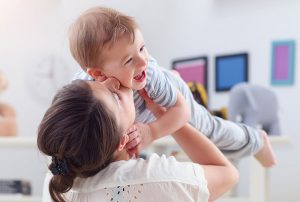What is autism?
 Autism, also called Autism Spectrum Condition (ASC), is a lifelong condition that affects how a person relates to other people and communicates with them. If your child is autistic they will experience the world differently. These differences can bring challenges as well as unique strengths.
Autism, also called Autism Spectrum Condition (ASC), is a lifelong condition that affects how a person relates to other people and communicates with them. If your child is autistic they will experience the world differently. These differences can bring challenges as well as unique strengths.
Things you may notice
Your child may struggle with social communication. They may display differences in how they understand and use verbal, and non-verbal communications like eye contact, tone of voice, gestures and expression. They could have little or no speech or good speech but struggle to follow or join in a conversation.
Routine or repetitive thinking and behaviours
Your child may have a strong desire for rules, routine and for things staying the same. They might have very intense interests, a special interest which they know lots about or like to collect things. They often like structure and find change difficult and may like and organising things like their toys.
Autistic children are often over or under sensitive to senses like touch, taste, sound, temperature or pain. Sometimes they can be both under and over sensitive to senses.
They may find some clothes unbearable, may only eat particular foods, find public spaces or parties too loud or overwhelming and may not tell you when they are hurt or feel unwell. Every child is different.
What causes autism?
We don’t know what causes autism but we do know it’s not caused by vaccines, bad parenting or infections. Autism is present from birth but is not usually diagnosed until children are older, and sometimes only when they are adults.
If your child is autistic they do not have an illness or a disease, they just have a brain that works differently from other people’s.
How can I help my child?
Autism is a spectrum, which means it is different for everyone. It can also change depending on the circumstance or environment. Your child may need little or no support, or may need extra help from a parent, teacher or carer every day.
There is no treatment or ‘cure’ for autism, but by breaking down the different things your child finds difficult you can find strategies to help them. Because there is no treatment, if your child is referred to us for assessment and they are diagnosed with autism, they will be discharged from our service.
Strategies and advice
If your child is diagnosed, understanding autism and helping to change the way we interact with someone who is autistic will support them to reach their potential.
The National Autistic Society has a short video about autism and lots of useful help, information and advice for parents/carers and schools.
It also has a video about autism which is aimed at children.
Referrals
If you have concerns, please see our Community Paediatrics page for information on how to refer your child.
Useful websites
Kent Autistic Trust: For information about the diagnosis of autism and the local area. It provides support services for families that are tailored to individual needs.
Because sensory processing can be part of several different types of neurodivergent conditions, we have a separate information page which contains useful videos, tips and advice.